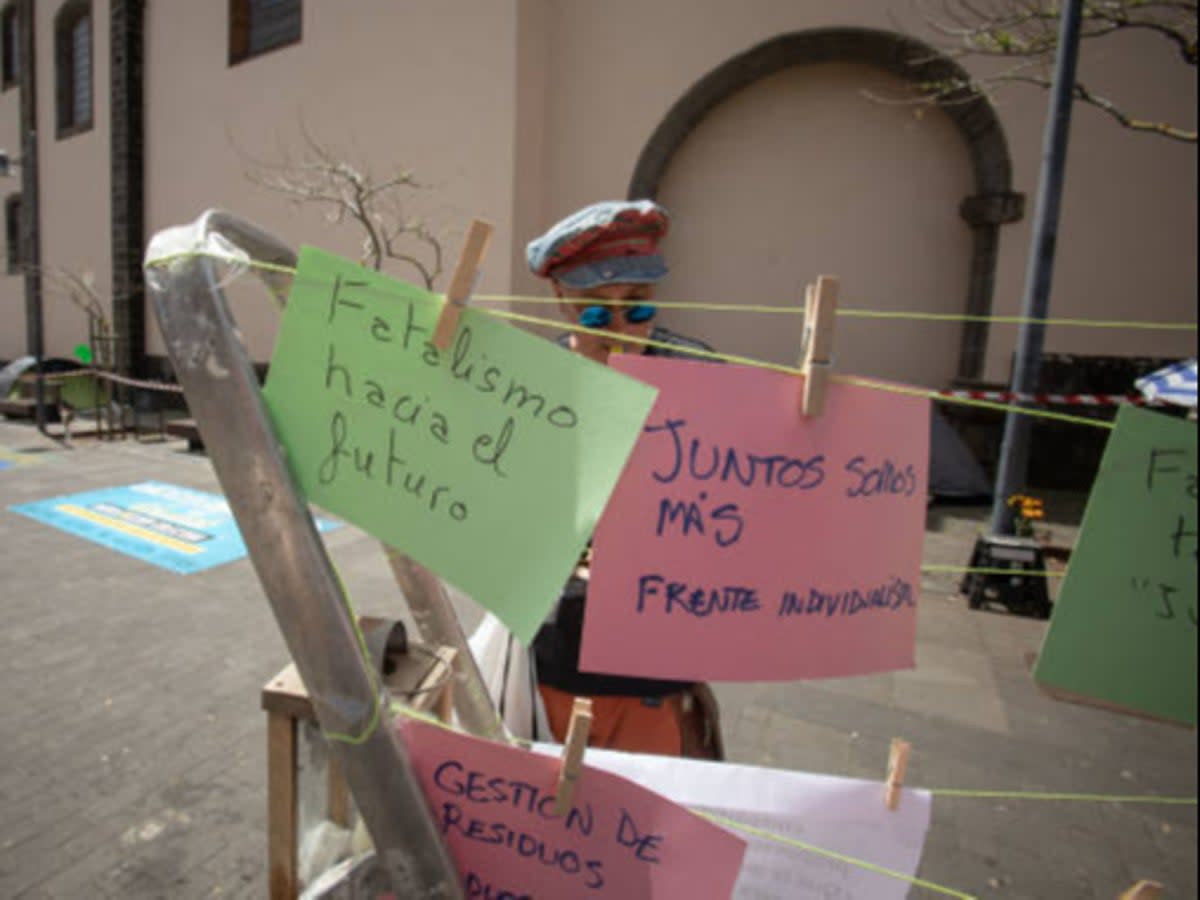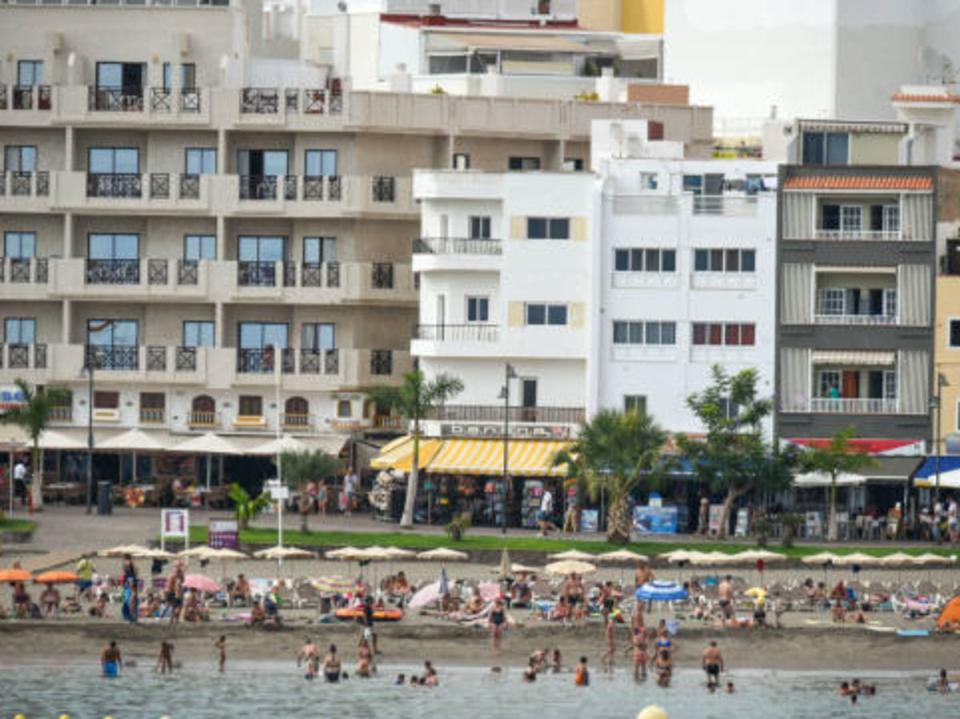Canary Islands pleads with tourists to ignore angry protests and ‘go home’ messages from locals

The head of tourism in the Canary Islands has begged British holidaymakers not to cancel their holidays over anti-tourism protests by locals this weekend.
Thousands of activists angry at pollution, water usage and a lack of housing are expected to stage demonstrations in Tenerife, Gran Canaria, Lanzarote, Fuerteventura and La Palma on Saturday.
In particular, they blame rising visitor numbers to the Spanish archipelago for the spiralling cost of renting and buying homes, as landlords turn flats and houses into tourist lets.

“Go home” slogans have been written in graffiti on walls, and several residents have started hunger strikes.
Other messages reportedly spraypainted on buildings included: “My misery, your paradise” and “Average salary in Canary Islands is 1,200 euros”.
British holidaymakers have been calling hotels in Tenerife to ask whether they will be safe during their stays amid the anti-tourist uproar.
A large protest is planned in Arrecife, Lanzarote, for Saturday, with flyers warning that the islands “have a limit” and that protesters will be marching for “conservation of natural spaces, a tourist moratorium, and tougher regulation for foreigners buying property”.
The hunger-strikers want authorities to halt two tourist projects, including the construction of a five-star hotel by one of Tenerife’s last virgin beaches.
Regional tourism chief Jessica de León told holidaymakers: “It is still safe to visit the Canary Islands, and we are delighted to welcome you”.
She said that while she understood the protesters’ concerns, it was unfair to blame tourism for the problems.
On housing concerns, she told The Telegraph: “The problem is that the past five years have seen an average of 3,000 homes built on the islands, when demand is for 20,000. Last year just 200 public housing units were built.”
Hotel and construction industry chiefs oppose the idea of a tourist tax, which has been suggested.
The islands’ president, Fernando Clavijo, suggested that some of the anger “smacked of tourist phobia”.
“People who come here to visit and spend their money must not be criticised or insulted. We are playing with our main source of income,” Mr Clavijo said.
Last year, 13.9 million tourists visited the Canary Islands - more than six times the islands’ population of 2.2 million. Of those visitors, 5.6 million were British.
Tourism, which accounts for about 40 per cent of the economy on the Canary Islands, soared after Covid lockdown restrictions were eased.

 Yahoo News
Yahoo News 
